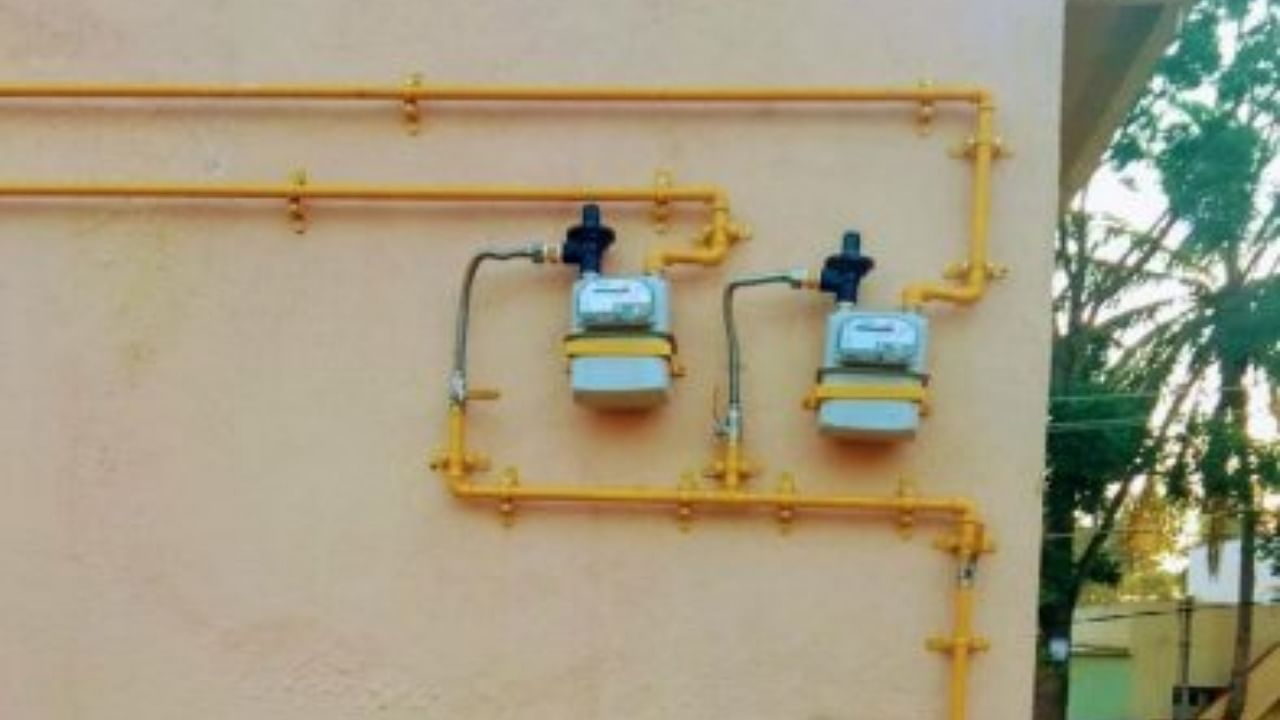
With the upcoming elections, the public is anxiously seeking assurance from candidates about obtaining piped natural gas (PNG) connectivity to their apartments or houses in their respective localities.
As PNG, which is cheaper and more convenient than LPG cylinders, gains popularity, the state government has drafted a new policy on City Gas Distribution (CGD) aimed at clearing hurdles that hinder the expansion of the gas pipeline network and increasing gas utilisation in the state.
The policy gains significance as Karnataka lags behind the Centre's target of achieving 92 lakh PNG connections to households in the next seven years, and the Government of India (GOI) aims to increase the share of natural gas in the country's primary energy mix from 6.2 per cent to 15 per cent by 2030.
Some key features of the policy include uniform permission charges in the state for laying gas pipeline networks, similar to the permission charges for laying optic fiber cables already fixed by the state, time-bound granting of permissions for laying gas pipelines, making available Civic Amenity (CA) land for CNG infrastructure (such as CNG dispensing stations, City Gate Stations, DRS, etc) after receiving applicable payments, banning polluting fuels in industrial areas, and promoting CNG vehicles in the state.
According to a CGD expert, "Some provisions, such as time-bound grant of permissions, are currently applicable only to GAIL Gas Ltd, which operates in districts such as Bengaluru (Urban & Rural) and Dakshina Kannada. While this has helped GAIL Gas to meet its Minimum Work Programme (MWP) in Bengaluru, the seven other entities, including BPCL, Maharashtra Natural Gas Limited (MNGL), AG&P, Mega Engineering Ltd, Indian Oil Adani Gas Ltd, Adani Total Gas Ltd, Unison, etc, whose geographical areas cover the rest of Karnataka, have not made much progress due to various hindrances faced by them in the districts."
Like water and electricity, CGD projects are categorised as public utility projects.
"PNG and CNG are considered economic, eco-friendly, safe, and convenient fuels, but the general public has yet to reap these benefits due to the delay in expanding the network. We believe the new policy will address existing gaps. It will also help the state address the problem of carbon emission," said the expert.
The CGD entities have been requesting the state government to come up with a policy by taking cues from other states that have come up with progressive policy measures to support the CGD project.